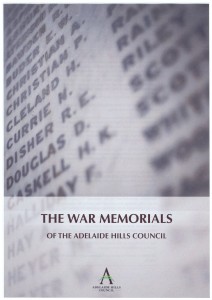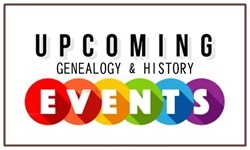Activities for the Genealogist While Self-Isolating
Are you currently in lockdown, quarantined or self-isolating at home? Looking for some ideas to fill the day?
I know that I could simply write “research” here and you’d all be happy (I would be), but for those of you who may need a break from just “research” on occasions, or don’t have the longer spurts of time required for researching, there’s plenty of useful genealogy-related activities that you can still do. Here’s a few ideas…
————————–
![]() WATCH – Webinars & Videos
WATCH – Webinars & Videos
Webinars and videos are a fantastic way to learn in your own time, and from the comfort of your own home. There literally thousands available to watch, and that’s without going to YouTube and searching for more, and most of them are free.
– Ancestry Academy – Short tutorial videos, covering Ancestry, DNA, methodology and more.
– FamilySearch Webinars – Watch webinars on researching in different countries, as well a numerous general topics (organisation, DNA etc.), as well as how to master the FamilySearch website.
– Legacy Family Tree Webinars – This one is a pay site, but at less than US$50/year, and access to over 1000 tutorial videos, it is SOOO worth it. But just so you know all newly added videos are free for 7 days, before they then go behind the paywall, and you will then need to pay or subscribe.
– MyHeritage Education – There are a heap of webinars available covering how to use the MyHeritage website to advantage, as well as how to build a family tree, general research basics, well as DNA and health tutorials.
– The National Archives (UK) – From using Discovery, to workhouse records, emigration, musters and militia, King Henry VIII, and a whole heap more.
– National Library of Australia – Watch videos on Trove, copyright, old Australian ephemera, media and more.
– New South Wales State Archives – Learn about how to use the NSW State Archive website, and the incredible collection of records they hold.
————————–
![]() LISTEN – Podcasts
LISTEN – Podcasts
Download some podcasts and listen to them while doing other activities.
– AdeLOL – Listen to Adelaide’s history like you’ve never heard it told before
– CutOff Geans – If you’re genealogy interest is specifically DNA, join Julie DIxon Jackson and Renee Colvert as they attempt to guide you through what it takes to use DNA to break down brickwalls, solve mysteries – or find your “people”!
– Downunder Genealogy – This podcast began last year, and there are 10 episodes. Created for Aussie’s, Michael Larman wanted a genealogy podcast with Australian content.
– Extreme Genes – Scott Fisher hosts this podcast and in it he shares genealogy resources and techniques to keep the genealogy researcher moving forward in researching their ancestors.
– Forgotten Australia – Forgotten Australia has been telling the stories we didn’t hear in history class. From the weekend Melbourne went mad and our forgotten Titanic hero, to Australia’s greatest Aboriginal tracker and the murder wave that shocked Sydney in 1932, this is history as you’ve never heard it before.
– Genealogy Gems – Lisa Louise Cooke helps you make the most of your family history research time by providing quick and easy-to-use research techniques. Producer and host Lisa Louise Cooke brings you the best websites, best practices, and best resources available.
– The Genealogy Guys – Listen to George Morgan and Drew Smith chat about different genealogy topics every episode.
– Genies Down Under – This podcast is not currently running, but you can still listen to all the old episodes.
– History Council of South Australia – This link includes links to other podcasts Australia history related podcasts
– National Library of Australia – Listen to various talks that have been recorded at the NLA.
————————–
![]() WRITE – Transcribing & Indexing
WRITE – Transcribing & Indexing
If you’re feeling like ‘giving back’ to the genealogy community, why not sign up for a transcription project or two. There’s plenty on offer, and they cover all sorts of records. Remember every name indexed, is another name that someone can find. Every little bit helps.
– Australian War Memorial – Their transcription tool on the AWM website is not currentlyworking, but they expect to be back online later this year. So keep an eye on the page if you’re interested in their projects.
– Biographical Database of Australia – The BDA is a project that gathers data from government and private sources in the post-convict era in all Australian colonies, and include early published biographical dictionaries, newspapers, diaries and letters.
– Discovering Anzacs – The Discovering Anzacs site a diverse selection of government records about Australians and New Zealanders in World War I and the Boer War.
– FamilySearch Indexing – FamilySearch always has indexing projects on the go, and currently they have over 100 projects from over 20 countries, so you’re sure to find a project that interests you. So pick a country, see what records are available to index. Look at the introductory videos, foloow the step-by-steps, and you’re good to get going.
– Founders and Survivors – Founders & Survivors is a partnership between historians, genealogists, demographers and population health researchers. It seeks to record and study the founding population of 73,000 men women and children who were transported to Tasmania. Many survived their convict experience and went on to help build a new society.
– German-Australian Genealogy & History Alliance – South Australia Land Tax Assessment Registers – This project started a few years ago, but isn’t finished yet. So if you’re interested in helping out, sign up.
– Measuring the Anzacs – Measuring the Anzacs is a NZ military project that contains about 3.7 million pages of images from 140,000 New Zealand service members’ files. The project is currently concentrating their efforts on transcribing History Sheets, Attestations (enlistment forms), Statements of Service, and Death Notifications.
– National Archives of Australia (The arcHIVE) – The arcHIVE, or HIVE as it is commonly known, is the National Archives of Australia’s online transcription portal. It enables volunteers to transcribe digitised item/consignment lists and other records such as Cabinet notebooks, migration records and Post Office records. HIVE gives everyone the chance to help describe items in the collection which are not able to be identified and accessed because they have yet to be listed or described on our online collection database, RecordSearch. To date over 500,000 descriptions of records have been transcribed through HIVE and added to NAA’s RecordSearch.
– The Prosecution Project – Criminal trials have been taking place in Australia since the first days of settlement. The archives of the Australian states are holders of these records, which are among the most complete in the world. The potential of these records for use by family historians as well as researchers has been recognised. The Prosecution Project has started digitising the registers of Supreme Court cases from around Australia, as these record the names of accused as well as their offences and the outcomes of the trials.
– The Ryerson Index – This massive collaborative project has now indexed over 7.4 million death and obituary records from Australian newspapers. They do have some transcription vacansies available at present, so check their website for details.
– State Library of New South Wales – The State Library of NSW has numerous transcription projects on the go, including Captain James Cook’s papers, Sir Joseph Banks’ papers, World War I diaries and letters, and Rediscovering Indigenous Languages amongst others. Register now if you’re interested in helping transcribe.
– State Library of Queensland – The State Library of Queensland is dedicated to making its digital collections more visible and accessible online so that everyone can use and share them, and you can help by becoming a digital volunteer! Tag SLQs photos in Flickr Commons, text correct Queensland newspapers, help transcribe SLQ collection, or tell us your Queensland story.
– State Library of South Australia – The State Library of South Australia needs your help to make their digital collections more accessible and more meaningful so that everyone can use and share them. You can help, by becoming a digital volunteer.
– Trove Newspapers – Text correcting Australia’s old newspapers on Trove is probably Australia’s best known transcription project, and probably the biggest too. It’s just so easy. Simply register, and once logged in, and you’re searching for whatever article topic you choose, correct it when you find it. Then on to the next one. And it means that someone else will then be able to find that article when they go looking. If you’re not sure how to go about text correcting, there are tutorial videos.
– Who Do You Think You Are? Magazine – Over the last few years Who Do You Think You Are Magazine has organised a big-once-a-year-event called “Transcription Tuesday” with the aim of choosing several types of records, which people from all around the world, sign up to, to participate in transcribing them. This years event was held in early February, but due to the Coronavirus and so many people being at home, they are currently holding “Transcription Tuesday Weekly Challenge” every Tuesday (UK time). So keep an eye of their Facebook page or blog to see what records are up next, and sign up for it if you’re interested.
————————–
So as you can see, there is absolutely oodles to do while you’re stuck at home … that is apart from research, watching Netflix, jigsawing and walking the dog. I also know that I haven’t listed all that is available, not by a longshot. But there’s plenty there for anyone who is interested in listening and learning.
The range of topic available though all of these mediums (webinars, podcasts and transcriptions) is so varied I guarantee you will not get bored. I will also say that there is obviously an Australia slant to the list with a few overseas ones thrown in, but that’s thanks to the fact I’m an Aussie. But as mentioned above there are HEAPS more webinars, podcasts and transcription projects going on elsewhere in world. So just google if you want more.
Anyway stay safe, stay indoors, and keep learning.
“War Memorials of the Adelaide Hills” Book
The Adelaide Hills Council was fortunate to obtain a grant through the South Australian Government’s “Anzac Day Commemoration Fund“. For this they nominated that the funds would be used towards “research and preservation of Honour Board Memorials of Adelaide Hills”, and to “engage with schools and local groups to locate and research honour boards for inclusion in the publication War Memorials of the Adelaide Hills”.
To commemorate Anzac 2015, a publication “War Memorials of the Adelaide Hills” was produced which details information about the war memorials throughout the Adelaide Hills in the towns covered by the Council, giving town name with details of the monuments.
A second edition of “War Memorials of the Adelaide Hills”, that will also include additional material and corrections that have been made by the community will also be produced, and released in due course.
The Council also have a separate project to research, photograph and record details on all the honour boards in the Council area. While the majority of the honour boards can be found in local RSLs, community halls and schools, others have found their way to more obscure locations. The lack of detail of honour boards made it difficult to provide a comprehensive account of the memorials within the Council area. The aim is for this one to be released as a book as well.
The Adelaide Hills Council covers a large area in the Hills region, and includes the towns: Aldgate, Aldgate Valley, Ashton, Balhannah, Basket Range, Birdwood, Bradbury, Bridgewater, Carey Gully, Castambul, Chain of Ponds, Charleston, Cherryville, Crafers, Crafers West, Cudlee Creek, Dorset Vale, Eagle on the Hill, Forest Range, Forreston, Greenhill, Gumeracha, Heathfield, Houghton, Humbug Scrub, Inglewood, Inverbrackie, Ironbank, Kenton Valley, Kersbrook, Lenswood, Lobethal, Longwood, Lower Hermitage, Marble Hill, Millbrook, Montacute, Mount George, Mount Lofty, Mount Torrens, Mylor, Norton Summit, Oakbank, Paracombe, Piccadilly, Rostrevor, Scott Creek, Stirling, Summertown, Teringie, Upper Hermitage, Upper Sturt, Uraidla, Verdun, Woodforde, and Woodside.
Can you help?
The Adelaide Hills Council believe that honour boards are another link in conserving our heritage and in the recognition of the sacrifice made by young men and women at times of war, and they are after your help. If you know the whereabouts of any honour boards within the district please let them know.
Contact Details
project convenor: Helen Smith
phone: (08) 8408 0400
email: mail@ahc.sa.gov.au
web: www.ahc.sa.gov.au
Genealogy, Gardening and a Time to Refocus
Spring is here, and after having the wettest winter for eight years or so in in South Australia, you can imagine that everything in my garden is growing like crazy. So now is the time to be outside out in the garden. I’m no gardener. I don’t make any claim to be. I’m the type of person who likes to plant things, and hopes for the best. And as about 50% of what I plant lives, I think I’m doing ok. 😉
Given that I live on a 1 1/4 acre property, with about half of that being garden, and the other half bushland it’s too much for Mr Lonetester and I to manage as we both work fulltime, so we have a gardener. But at the moment we’re between gardeners, and in the meantime the weeds keep multiplying, I’ve been making an effort to get out there and stem the tide.





